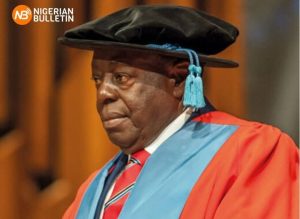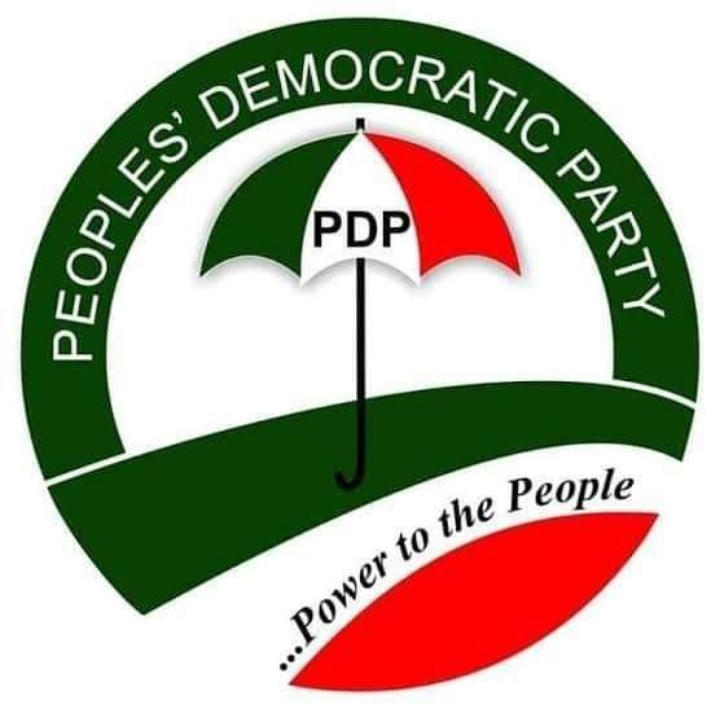Farotimi’s Anarchist Ideology
By Elempe Dele
The question before every lip today is if the embattled lawyer, Dele Farotimi, is proposing an anarchist society where there is no government or system, and how then would law and order be enforced. How would the society be able to enforce the expulsion with force individuals or group that violates the anarchist ideology?

How would they run correctional centres for violators? Would there be regulatory penal codes? All these questions should be used to canalize our vigilance towards such a possibility, even if its for ritual purpose.
For the unitiated, the core concept of anarchism as a political ideology is not only just about chaos, violence lawlessness but about the notion of self-government, freedom from oppression, and rejection of authority.
Anarchists like Dele Farotimi, Omoyele Sowore, David Hundeyin and others believe that the state is the major source of most social problems which include but not limited to crimes, poverty, inequality and corruption.
When you listen to Farotimi’s interview concerning a certain tribe in Nigeria that do not depend on the civil service for their survival, but does independence businesses for their livelihood, you will easily be able to relate with his idea of anarchism where individuals are able to freely pursue their interests without interference from the government.
Although Farotimi has never openly advocated for violence and revolution to overthrow the government, he has openly condemned the 2023 presidential election as fraudulent while casting aspersions against individuals beyond the threshold of freedom of expression.
He does not believe there are laws, even as a lawyer, that should be necessary to guide against the exposure and challenge of oppressive structures of power even without any form of evidence.
When interviewers ask him about evidence, he tells them he relies on his convictions. One can easily take note of that in his antecedent history way back.
He appears on national television to make unfounded allegations against persons and institutions. That is one of the hallmark of an anarchist – he does not believe the law should dictate to him what to say or what to do.
Farotimi’s latest ordeal stemmed from a book he wrote recently: Nigeria and Its Criminal Justice System. In the book, he made very lacerating and injurious allegations against Chief Afe Bababola SAN and some judges of the Supreme Court over a litigation in which his law firm and that of Babalola had interest where his client lost out.
The Police has also filed charges bothering on cybercrimes against him. At the moment, he is pulsating in Ekiti State Correctional Centre from where he will appear in court next week.
Back to the question on everyone’s lip: can anarchy really work here and how will Nigeria get to that point? It is possible to dismantle all the existing democratic structures with an anarchist dynamite?
How can Nigeria be run without a certain system of government even with its imperfections? Is Farotmi’s anarchism a viable social theory that can be practised in Nigeria as a replacement for our imperfect democracy?
Yes, Farotimi, even with his hair style as a lawyer, you will notice he is non-conformist. As an anarchist, his advocacy tends towards some sort of social revolutions of disregard for the system where the people are able to emancipate themselves from law, order and the system – including the ‘corrupt’ justice system where he earns a living and often goes to seek redress without believing in it.
Anarchists like Dele Farotimi have very fantastic ideas of how Nigeria can function without the corrupt system of government labelled democracy and I am sure his challenge is how the transformation from democracy to such utopia will work. He is a sure candidate who wants Nigeria to work in his own vision – vision of purity.
Anarchism comes from the Greek word anarchos, which translates to mean ‘without ruler.’ As related earlier on, the underpinning ideology behind this imaginative concept is unregulated state without real authority. That is why Farotimi thinks, even as a lawyer, he should not be shackled under the laws which prohibit cybercrimes and defamation.
He feels he should not be restricted by man-made laws. He said he did not study the law to obey the law. When individuals refuse to obey laws, that is a proactive journey to abolishing the constitution and government.
I personally feel it would be difficult to achieve Farotimi’s anarchist Nigeria as far as our concrete reality is concerned.

I am certain several critical thinkers we agree with me we are far from such reality as of today. We must think of how possibility can we have a nation without a meaningful governmental mechanism or legal system, and how can an anarchist state as envisaged by Farotimi system ensure the rule of law, its enforcement and as well as punishment.
I mean how can the anarchist system deal with citizens who breaks laws, who are violent or violate the freedom of others within the system? This is one of the problematic situation anarchism is faced with. Will it be possible for everyone in the system adhere to rules through purely ethical and philosophical considerations without the police and the law?
How will the system deal with people with problematic behaviours? Is it possible to instruct everyone in the society to change their behaviour towards a certain pattern without breaching such compromise?










